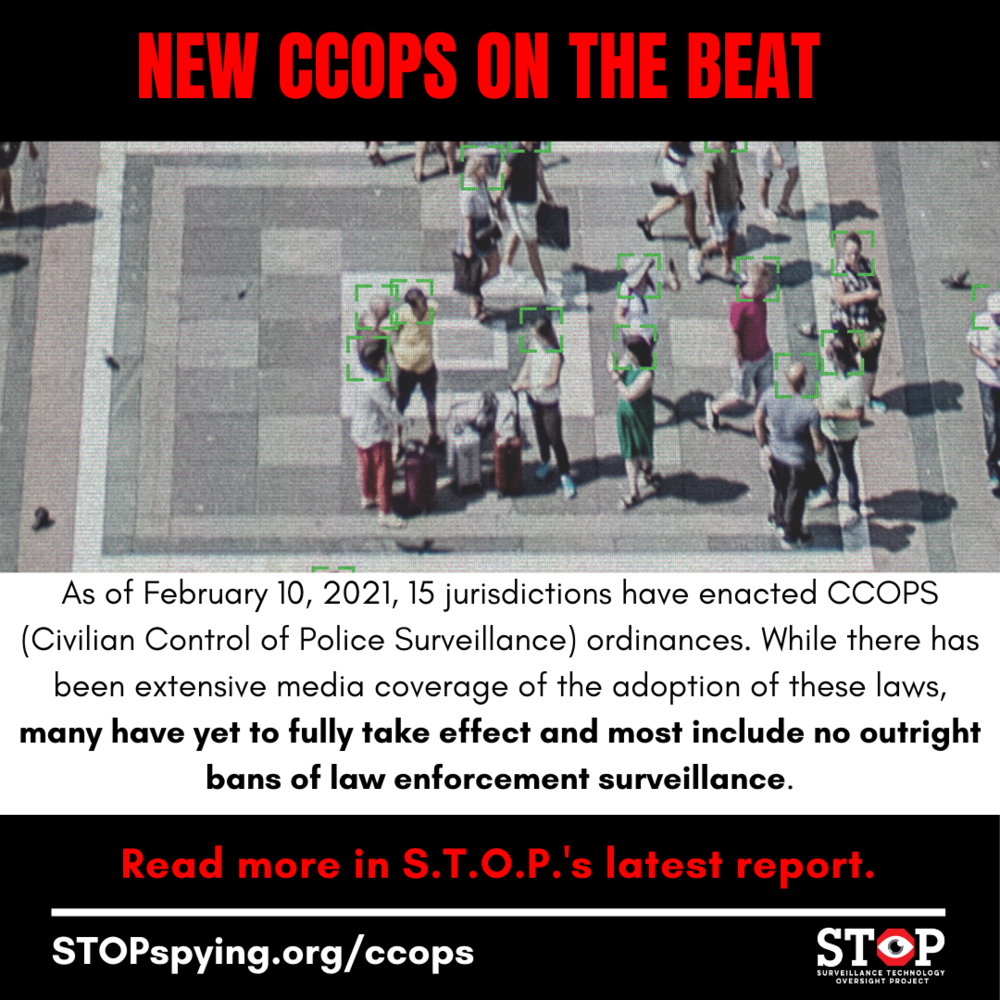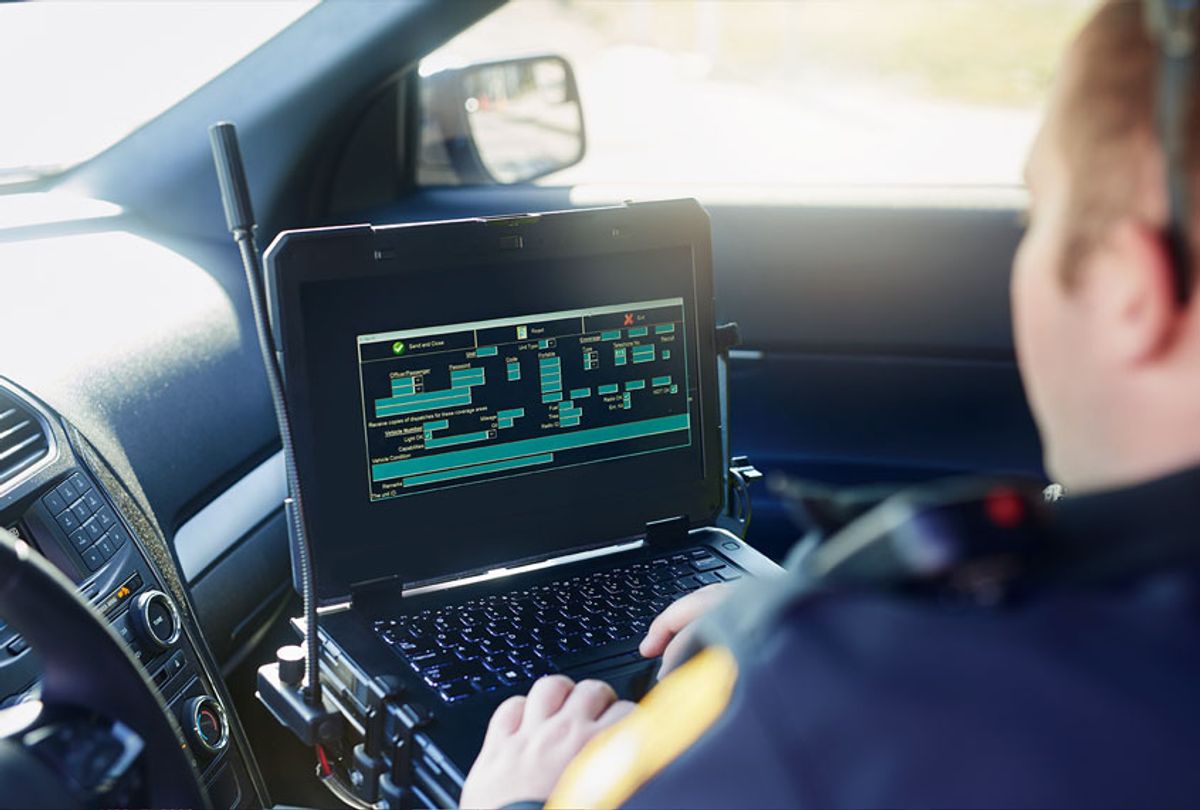“Trust between the community and the people who are sworn to protect them is what actually provides public safety,” he says.
“You need engagement of the community in order to actually have public safety.”
It’s Not Easy to Control Police Use of Tech—Even With a Law
". . .The laws vary in their specifics. Some require regular meetings between police and community members, annual audits for effectiveness and potential bias, greater transparency of vendors and the cost to taxpayers of any new tech, and a period of public comment before purchasing new tech such as body cameras or ShotSpotter, which uses microphones to detect gunfire. . .
In a student white paper released earlier this year, the Samuelson Law, Technology & Public Policy Clinic at the Berkeley School of Law said many of the ordinances are weaker than Oakland’s. New York City and Grand Rapids don’t empower citizens to file suit, as Oakland does. In six jurisdictions, including Cambridge, Massachusetts, and Palo Alto, California, police are exempt from the rules. So while a library or school would have to allow for public comment for new surveillance tools, police are exempt from restrictions if they’re executing a warrant or responding to a crisis. Most of the cities give police broad latitude to use surveillance tech during “exigent circumstances.” Students Tyler Takemoto and Ari Chivukula, authors of the white paper, say this can create loopholes in citizen oversight. . .
> Acknowledging that there’s no perfect combination of rules, the authors suggest such ordinances empower citizens to sue and create independent bodies to oversee police and provide support. “Maybe the most important thing is the outside advice … a local nonprofit or community group that's going to stay engaged,” Chivukula says. “If you don't have public engagement, then there's no pressure.”
SO HOW DID ALL THIS HAPPEN ANYWAY?
The movement in Oakland toward reining in police surveillance began in 2014, when groups including the ACLU and EFF protested a proposed “Domain Awareness Center,” a fusion center combining microphones, CCTV, and surveillance data.
First created for port security, the city was moving toward approving a citywide expansion. The advocacy groups successfully campaigned to cancel the expansion and create a temporary privacy committee that would write policies for the city’s use of technology. This became an early iteration of the CCOPS model. . .With an ongoing reporting obligation, we would for the first time ever have real data to determine efficacy, inform policy decisions like retention limits and third-party access, and identify any civil liberties impact,” Hofer says. At the time, he says, “we did naively believe that law enforcement would be truthful in the presentation of data and when discussing the pros and cons of potential uses.”
__________________________________________________________________________
“Trust between the community and the people who are sworn to protect them is what actually provides public safety.”
--- Nathan Sheard, organizing director, Electronic Frontier Foundation
__________________________________________________________________________
In the suit, however, Hofer alleges Oakland police have refused to provide the necessary use policies for technologies that were in place before the ordinance took effect, and have allowed federal officials to access surveillance data without written requests, among other things. According to the suit, the police agreed to audit the use of license plate readers for bias and effectiveness, but haven't produced any audits since 2018.
In 2017, Nashville formed a Community Oversight Board that pushed for a referendum where residents voted in favor of adopting a local version of CCOPS.
> Then, last year, city councilmember Courtney Johnston introduced a bill enabling police to purchase and install license plate readers, citing a nationwide crime spike and an ongoing street racing problem.
Andrés Martínez, the chair of the oversight board, helped rally opposition, citing reports questioning the effectiveness of the technology. The proposal has been deferred several times.
“In reality, when you look at what license plate readers actually do, it's minimal compared to the amount of data that they capture,” Martinez says. “I think that our money and attention would be better served in trying to find actual community-based solutions to our public safety issues.”
> Johnston, the councilmember, says she’s voluntarily held the bill because she wants to add restrictions on use of the license plate readers that will make both the oversight board and opposing councilmembers more comfortable with the technology. She has already amended the proposal to restrict where and when the cameras can be installed, how many officers would have access to them, and how long police retain the data. In the meantime, she notes, crime rates have increased and several neighborhoods have complained of disappointingly slow police responses.
. . .Nathan Sheard, organizing director of the EFF, explains that at its best, CCOPS is useful in getting people to realize that “the trade-off between civil liberties and public safety is a false dichotomy.”
“Trust between the community and the people who are sworn to protect them is what actually provides public safety,” he says.
“You need engagement of the community in order to actually have public safety.”





No comments:
Post a Comment